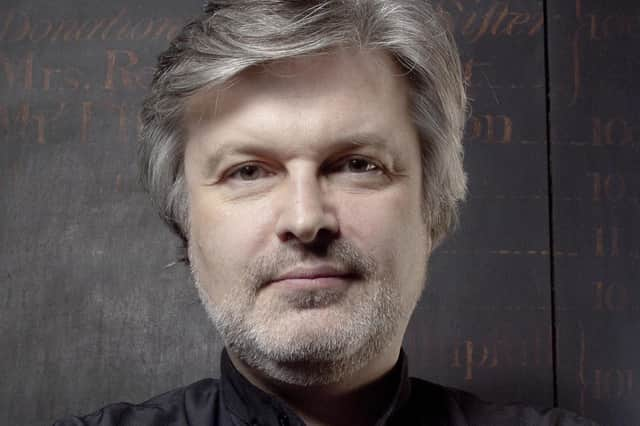James MacMillan on his new Violin Concerto, dedicated to Nicola Benedetti


“It felt very dark at the beginning. It was wonderful getting lots of private thinking done, and I wrote a lot of music during that time. But I hated the prospect of our culture being closed down and society damaged. Actually, I’m still worried about that.”
Sir James MacMillan is taking a moment to reflect on lockdown, and on two years of pandemic restrictions. One of the works that emerged from that dark period, however, was his Second Violin Concerto, which gets its first performances from Nicola Benedetti and the Scottish Chamber Orchestra (one of the co-commissioning ensembles) under Maxim Emelyanychev later this month. “It seemed like a time when things tended to be more introverted,” MacMillan continues. “I suppose I turned inwards as well. Maybe that had an effect on the music – we’ll soon find out.”
Advertisement
Hide AdAdvertisement
Hide AdIntroverted or not, the Second Violin Concerto is unquestionably a very different work from MacMillan’s First, a big, exuberant piece written in memory of his mother, with showy virtuosity for its soloist. Is it a conscious decision for MacMillan to write differently for instruments when he returns to them? “Yes, I think so,” he says. “In this case, I thought first about a smaller orchestra, and about making a more compact piece in just one movement instead of three, though it moves into various different musical territories. But it definitely has a different feel – it’s more intimate. It’s quite a rhapsodic and an emotional piece – there’s lot of emotion in the melodic writing, I think, but also humour and wit.”


There are strong personal connections in the Concerto, too: it’s dedicated to Benedetti, with whom MacMillan has had a long and important musical relationship. “I’ve known Nicola for many years – I suppose I’ve absorbed a lot of her personality into the music in the new Concerto.” And let’s not forget, either, the Scottish Chamber Orchestra, with which MacMillan has even longer professional connections. “Because I knew the SCO would be premiering the Concerto, I could see faces while I was writing as well as hearing sounds. There’s a whole passage as the piece approaches its climax where Nicola goes into a series of duets with principal players – I love that kind of playfulness, and it’s another way of highlighting the personalities of the orchestral players.”
There are further personal connections, too, through the figure of Krzysztof Penderecki, the iconic Polish composer whose music inspired MacMillan early in his career, who died in 2020. “I actually met him once, at Buckingham Palace – it was Mstislav Rostropovich’s birthday, and I was sitting next to Penderecki at dinner. I think he was quite surprised that I even knew who he was, and I told him that I’d admired his music since being a teenager. I don’t think there’s anything of him in the Concerto’s music itself, but it’s a homage to someone I greatly admired when I was younger.”
Perhaps significantly, Penderecki was also a composer whose music changed radically over his career, from the uncompromising, nerve-shredding modernism of works such as Threnody to the Victims of Hiroshima to the lush, ear-caressing neo-Romanticism of his most recent works. It might be crass to draw parallels with MacMillan’s own trajectory, but even he concedes that his own perspectives on music may have changed in the past few years. He points in particular to his recent choral Symphony No. 5, “Le grand inconnu”, premiered at the 2019 Edinburgh International Festival. “It was at the time of my 60th birthday, and I felt a big knot at the time. In writing my Fifth Symphony, I could tell that something had changed in the way my music was going. It will probably lead to things that I haven’t even thought about yet. And maybe the Second Violin Concerto is a clear example of that evolution – composers can never be terribly clear and reliable about analysing themselves.”
A new direction? Maybe, and maybe one that builds on foundations MacMillan has already laid down in recent works, perhaps infiltrated by the experiences of lockdown. Find out for yourself with the first performances of his new Concerto.
James MacMillan’s Violin Concerto No. 2 receives its first performances from Nicola Benedetti and the Scottish Chamber Orchestra conducted by Maxim Emelyanychev at Perth Concert Hall, 28 September, the Usher Hall, Edinburgh, 29 September and Glasgow Royal Concert Hall, 30 September. More details at www.sco.org.uk